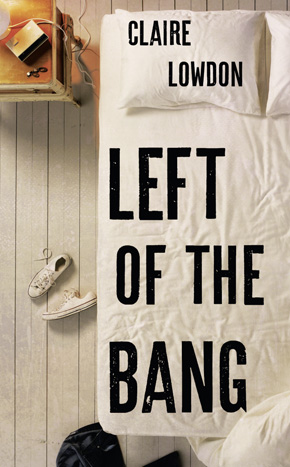All-seeing I
by Claire Lowdon
“Clear-eyed, audacious and disarmingly honest.” William Boyd
Omniscient narrators are an endangered species. Once they flourished, roaming freely over the lush grasslands of 19th-century fiction. Now, when I look at my bookshelves, it seems that less than 10% of contemporary fiction is narrated omnisciently.
A simple experiment: take a look at your own shelves and ask yourself who’s doing the talking. Count it up. Of the first thirty books from the 21st century I came to, just two (Adam Thirlwell’s Politics and Zadie Smith’s On Beauty) were written from an omniscient perspective. Most popular by far was the first person narrator – thirteen books out of thirty, nearly half. Then came the multi-perspective approach – either third person focalised or first person, with the viewpoint shifting from chapter to chapter or section to section (seven books out of thirty). Next, third person focalised, no switching (four books). There were three books that didn’t fall easily into any category, and one – always a rare breed, this – narrated in the first person plural.
What is omniscient narration? The term itself often provokes existential angst: how is it possible for anyone to know everything? Does omniscience imply some sort of assumed godlike-ness? But it’s really quite simple. An author writing from an omniscient perspective can take the narrative anywhere they choose. This often includes listening in on characters’ thoughts – shading into third person focalised – but it will also involve panning out to comment from a distance.
That distance is sometimes as small as a description of a character that the character herself would be unlikely to ‘think’. In Smith’s On Beauty, for example, when Kiki’s face resolves itself into “impassive blackness”, we are told that “it was this sphinx-like expression that sometimes induced [her] American friends to imagine a more exotic provenance for her than she actually possessed.” Sometimes the distance is much larger, as large as the times themselves: think of George Eliot documenting countrywide social change in Middlemarch: “Old provincial society had its share of this subtle movement: had not only its striking downfalls, its brilliant young professional dandies who ended by living up an entry with a drab and six children for their establishment…”
There are many literary effects that are only possible in the omniscient mode. In any other narrative voice, it is hard to contrast the thoughts of two or more people within the space of a single scene, let alone a single paragraph. The omniscient narrator can also flash forwards and backwards in time at will – to give you an ironic glimpse of a future as yet unknown by the characters, say. Those are just two examples of many, typical of the peculiar agility available to the omniscient narrator. It is an agility that is also unique to the written word: what other medium can zoom in and out in this way, temporally, spatially, psychologically, with such ease? Which is why the current dearth of omniscient narrators seems such a shame, a real limiting of the fictional palette.
We always know that we are reading a novel – there’s a book in our hands, after all – so why should a narrator who highlights that fact necessarily spoil the credibility of the fictional world?”
So what has been killing off the omniscient narrator? There are degrees of omniscience, and at the far end of the scale there is a feature that we have become particularly allergic to: explicit authorial commentary. In his book The Art of Fiction, David Lodge terms this “the intrusive authorial voice”, giving an example from E.M. Forster’s Howards End (on which, as it happens, Smith’s On Beauty is modelled): “To Margaret – I hope that it will not set the reader against her – the station of King’s Cross had always suggested infinity.” Bam – suddenly, there he is – the author himself, breaking through the fiction of the fiction to remind us that someone actually wrote these words, made up the character of Margaret. Lodge dates the decline of the intrusive authorial voice to the start of the 20th century, arguing that it fell from favour “partly because it detracts from realistic illusion and reduces the emotional intensity of the experience being represented, by calling attention to the act of narrating. It also claims a kind of authority, a God-like omniscience, which our sceptical and relativistic age is reluctant to grant to anyone.”
Lodge’s explanation is plausible but baffling. We always know that we are reading a novel – there’s a book in our hands, after all – so why should a narrator who highlights that fact necessarily spoil the credibility of the fictional world? Authorial intrusion can even heighten verisimilitude. As Lodge goes on to say, Forster “invites our sympathetic interest in the characters and their fortunes by referring to them as if they were real people.” The intrusive authorial voice is also able to comment on the human condition in general. George Eliot again, this time in Adam Bede: “Family likeness has often a deep sadness in it. Nature, that great tragic dramatist, knits us together by bone and muscle, and divides us by the subtler web of our brains; blends yearning and repulsion; and ties us by our heart-strings to the beings that jar us at every movement.” The pleasure here – and it is a very great pleasure – is that of hearing someone clever and wise offering their well-formed thoughts on the world. And provided an author has something interesting to say, why shouldn’t we want to hear their thoughts? Critics of omniscience complain that realism is impaired by these direct authorial comments. But this is what we do in real life: we comment, we tell, we analyse. So in the novel it is (paradoxically) also a realistic effect.
A recent example of this more extreme omniscience is Milan Kundera, whose novels blend first-person philosophical essay and fiction in roughly equal parts. Writing in the 1970s and ’80s about the political atmosphere in communist Czechoslovakia, Kundera’s updating of the omniscient narrator was taken very seriously indeed. When Thirlwell employed a variation on this approach in Politics (2003), a novel about a ménage-a-trois, the narrator was unnamed but almost a character in his own right, and boisterously, joyfully, hilariously omniscient. Which didn’t go down well. Critics were bothered by “an authorial persona that constantly disrupts the quirky flow of events”, by “the manner in which the emotional development and psychological apparatus of the characters is obsessively disassembled and analysed as we go along.” Objections that seem amazingly retrograde in our post-post-modern world. The genius of the novel form is that anything is possible; this sort of prescriptiveness, surely, is fatal.
I knew I wanted to write omnisciently. I was excited by the psychological complexity that omniscience affords – by the possibility of contrasting multiple consciousnesses in the same scene.”
When I first started thinking about my novel Left Of The Bang, I knew I wanted to write omnisciently. I was excited by the psychological complexity that omniscience affords – by the possibility of contrasting multiple consciousnesses in the same scene. I wanted a voice that would let me expose the misconceptions we have of ourselves and others, and the ramifications of all those minute misunderstandings. I also, initially, liked the idea of being able to comment more generally on the times we live in, the way human nature works, the city (London) at large. But I found I was shy of it, I think perhaps because there are so few contemporary models to draw on. Like Zadie Smith (see her essay ‘That Crafty Feeling’) I found myself writing surrounded by open books, looking to Tolstoy and Eliot and Hardy and Austen to see how it was done. I certainly wished for more up-to-date examples. (I wonder if the current predominance of the first-person-narrator isn’t partially self-perpetuating: it’s what people are mostly reading, so it becomes what people mostly write.)
When I looked back over the first draft, it was like watching someone trying to hide their fear of petting a dog. I’d just about managed to drop in and out of my characters’ heads at will, and I was able to discuss their emotions with a distance unavailable to the characters themselves. But all my attempts at broader commentary – the George Eliot-style pronouncement on life – were failures. A clever early reader pointed out that this was because I was doing it far too infrequently, only occasionally passing more general judgements unattached to the plot. It took me nine pages to psych myself up for the first stab at intrusion, and by that point, the narrative conventions (low-grade omniscience, narrator present but basically hanging back) had already been established. You could smell my fear, which of course completely shatters the illusion of omniscience. To pull that trick off you have to go into it with your colours pinned firmly to the mast from the very beginning. Once again George Eliot provides the perfect model, brilliantly announcing her own presence at the start of Adam Bede: “With a single drop of ink for a mirror, the Egyptian sorcerer undertook to reveal to any chance comer far-reaching visions of the past. This is what I undertake to do for you, reader. With this drop of ink at the end of my pen, I will show you the roomy workshop of Jonathan Burge…”
For the second draft, I got rid of all attempts at intrusive omniscience, and the novel felt better for it. Looking back, I think part of the problem is that I don’t feel especially wise. But I hope to crack it one day: a thoroughly modern version of the omniscient narrator. In the meantime, cast off your fear of authorial intrusion, dear readers! Let’s embrace biodiversity and encourage this once-abundant species back into the wild.
 Claire Lowdon read English at Oxford and is the Assistant Editor of Arete. She has written for Arete, the Times Literary Supplement, New Statesman, Prospect, the Observer and The Sunday Times. Left of the Bang is published by Fourth Estate in hardback and eBook, and available as a Harper Audio download. Read more.
Claire Lowdon read English at Oxford and is the Assistant Editor of Arete. She has written for Arete, the Times Literary Supplement, New Statesman, Prospect, the Observer and The Sunday Times. Left of the Bang is published by Fourth Estate in hardback and eBook, and available as a Harper Audio download. Read more.

